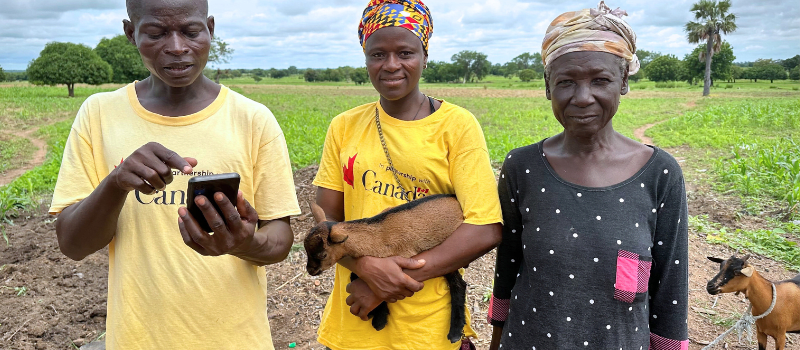This Earth Day (April 22), we're reflecting on the latest Intergovernmental Panel on Climate Change report, and its dire warning: adverse impacts from human-caused climate change will continue to intensify, driving significant consequences for humans and non-human species, worldwide.
As part of Veterinarians Without Borders/Vétérinaires Sans Frontières (VWB/VSF)'s One Health model — healthy animals, healthy people, and a healthy environment— we're working at the community-level to build a healthier environment and more climate-resilient communities, which includes responding to natural disasters when possible.
Climate resilience, which is the ability of these systems to withstand and adapt to the changing climate conditions, is becoming an increasingly important issue, as the impacts of climate change continue to be felt around the world. From rising sea levels and more frequent and severe weather events to prolonged droughts and extreme temperatures, the effects of climate change are posing significant challenges to communities, economies, and ecosystems alike. Building resilience is crucial because it helps to reduce the vulnerability of societies and ecosystems to the impacts of climate change, and to enable them to bounce back from disasters more quickly. By investing in climate resilience, we can help to safeguard our communities and economies, preserve our natural resources, and ensure a more sustainable and secure future for all.
 A home and farm shelter destroyed by Pakistan's floods.
A home and farm shelter destroyed by Pakistan's floods.
This past summer, in Pakistan, VWB/VSF sprung into action after severe flooding affected more than 1/3 of the country. This unprecedented flooding was the4 result of increased rainfall patterns and melting glaciers in the Himalayas. This vulnerability is only amplified due to the dependence of Pakistan's economy on agriculture, which is heavily reliant on water.
As temperatures continue to increase, glaciers in the Himalayas will melt at an accelerated rate, resulting in the formation of glacial lakes that can burst their banks and cause flash floods. In addition, changing rainfall patterns are causing heavier and more frequent monsoon rains, which can overwhelm the country's aging infrastructure and exacerbate the impact of floods.
It's estimated that over one million animals perished in the floods.
This flooding not only killed thousands of people and over one million farm animals, but also destroyed homes and entire communities. VWB/VSF partnered with an on-the-ground organization to ensure individuals and families who had already lost everything could ensure their remaining farm animals received care, food, and shelter — simultaneously supporting economic and nutritional well-being from the community-level.

Farm animals receiving fodder during flood recovery efforts.
This ongoing support included vaccinating farm animals and providing veterinary assessments, replacing animals lost due to the catastrophic floods, and providing agricultural training. As part of VWB/VSF's One Health model, we also encourage the adoption of climate-smart agriculture practices that can help farmers adapt to changing weather patterns and reduce the vulnerability of crops to flooding, worldwide.

A farmer feeding his cow at a flood recovery training session.
With the devastating impacts of climate change becoming increasingly common, we are determined to continue helping communities establish climate-smart agricultural practices to not only mitigate our changing global climate, but also create long-term economic and nutritional solutions.



